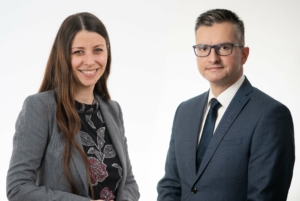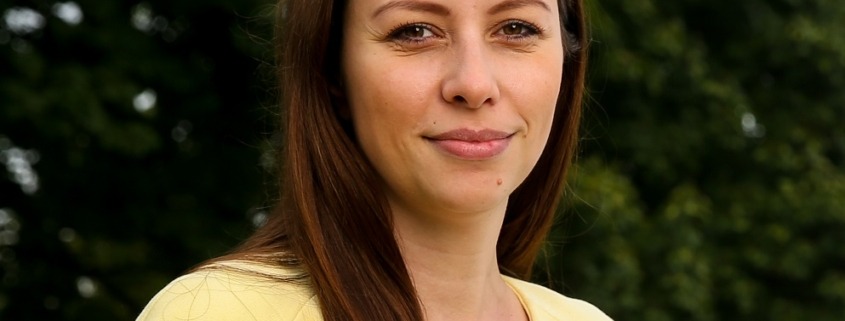MEP Irena Joveva (Renew Europe/LMŠ) spoke to the Savinjske Novice newspaper about the legislative policies she is co-creating, which will also have a significant impact on the future development of the Upper Savinja Valley.
The pandemic has accelerated some of the EU’s political and legislative decisions, especially in the area of green and sustainable policies. In the Upper Savinja Valley, natural disasters have become rather common, and climate change is only making things worse.
Unfortunately, climate change is making things worse everywhere. A lot has been done during this term in this regard, even before the pandemic set in; the Green Deal was adopted in December 2019, but there is no doubt that certain decisions were accelerated by the pandemic. We are fighting the pandemic with a vaccine, but, unfortunately, there is no vaccine against climate change. It is therefore important to adopt legislation that is geared towards preventing natural disasters and, at the same time, has mechanisms in place to respond effectively when they happen. The starting points will be to lower insurance premiums and invest in solutions. The EU has already established aid mechanisms for natural disasters, and we have also initiated the creation of additional financial mechanisms for various prevention projects focused on reducing flood risks and fighting drought, fires and landslides.
We also hear a lot about making better use of wood, which is both a renewable energy source and an ecological material with a variety of uses.
Forests are an important part of our fight against climate change, which is why we want to establish a common way of managing them in the EU, but when it comes to how to protect them, there is a wide divergence of views in Member States. Still, the European Forest Strategy, finally endorsed last November, will support the socio-economic functions of forests for thriving rural areas and promote the bio-economy, while ensuring their protection and restoration. Wood was once the main material for construction, heating and furniture design, and now it is once more the raw material of the future. We need to think about how we wish to re-establish the wood-processing industry, which, in addition to economic growth, would bring many new jobs.
The EU devotes substantial resources to agriculture, promotes self-sufficiency and local production, and the European Parliament has recently debated the Farm to Fork Strategy …
That is true. The aim of this strategy is to accelerate the sustainable transformation of food systems, while ensuring a fair return for farmers, in such a way that crop production meets the objectives set out in both the Green Deal and the Biodiversity Strategy. It puts people first. The fact is that today – not least because of the pandemic – we are more aware of the importance of local production of good quality, organically produced healthy food. Farmers are, and always will be, the cornerstone of our food systems, and I am pleased that they are again being given the attention they deserve.

Before the pandemic, Slovenia was increasingly establishing itself as a tourist destination, and we are counting on tourists to start returning.
Absolutely. We all miss travelling, but we can actually find gems right on the doorstep. The unspoilt nature, the natural and cultural attractions, the cuisine … All of these attract tourists to Slovenia, including to your region. The Logarska Valley, the Matkov Kot and Robanov Kot valleys, the Golte Landscape Park …
But we must not forget about the infrastructure. Tourism and the economy will not flourish if it takes forever to get here.
Of course, infrastructure is the basis, both for tourism and industry and, just as importantly, for the accessibility and the environment. There are plenty of opportunities to draw on European funds, but one has to roll one’s sleeves up and have a vision. In fact, it is very straightforward: without the proper infrastructure, not only will businesses (and as a result jobs) move elsewhere, but also people themselves. Young people have to be offered something if they are to stay here. Rather than underestimating each and every one, the ruling politicians in particular should realise that young people want to live, not just to survive, and that they know how to stand up for themselves. All the more so in these days, and I am sure they will show this in the April elections.
Marjan Šarec: We place great emphasis on agriculture
 As people of the Upper Savinja Valley, you can be proud of your oldest economic industry – agriculture. Agriculture has been put under the spotlight in the LMŠ party programme “Normalisation. Solutions. Development.” We are in favour of helping young people who take over farms or those who rent and rebuild dilapidated farms. We support State aid to ensure the future of farms whose heirs do not wish to continue farming, and we also embrace the idea of intergenerational cooperation, or ‘intergenerational cooperatives’.
As people of the Upper Savinja Valley, you can be proud of your oldest economic industry – agriculture. Agriculture has been put under the spotlight in the LMŠ party programme “Normalisation. Solutions. Development.” We are in favour of helping young people who take over farms or those who rent and rebuild dilapidated farms. We support State aid to ensure the future of farms whose heirs do not wish to continue farming, and we also embrace the idea of intergenerational cooperation, or ‘intergenerational cooperatives’.
The idea is to provide jobs for young people and to afford greater security to people who are left alone on the farm and persist there despite their old age.
Cooperation between the generations would make it possible to maintain and develop agriculture in the future. This is also linked to the sustainable development of tourism, based on natural, historical and cultural assets, with an emphasis on fine cuisine, wellness programmes and the promotion of healthy lifestyles. The State will have to help in these efforts by actively promoting the two activities in the main markets, by providing various incentives and measures for their development as well as by building better road links, so that you can continue to serve as a model for many other Slovenian regions, of which I am certain.
You can read the text also in the Savinjske Novice newspaper on this LINK.




Leave a Reply
Want to join the discussion?Feel free to contribute!